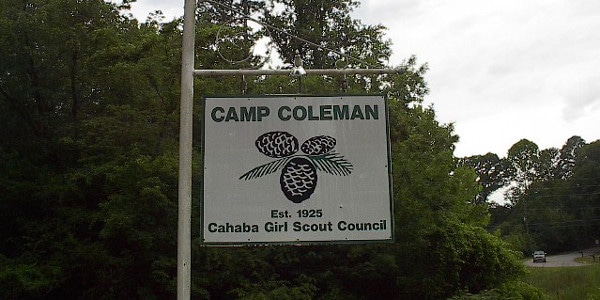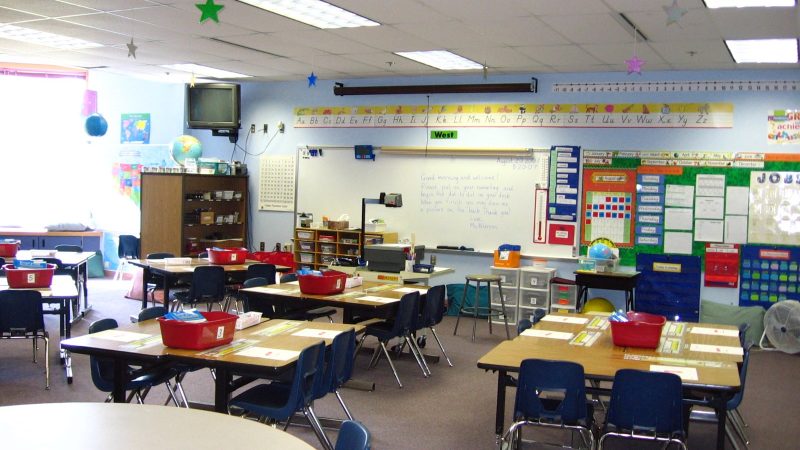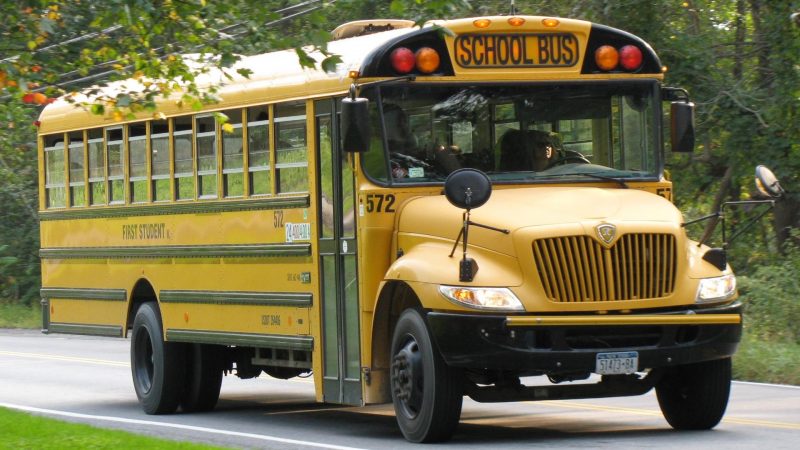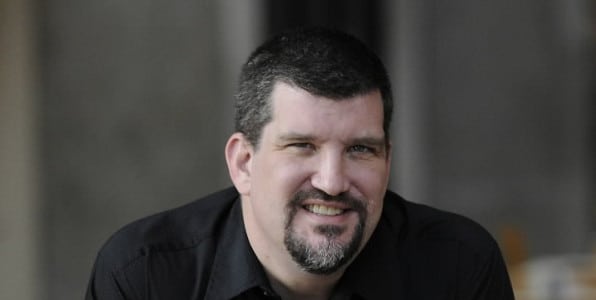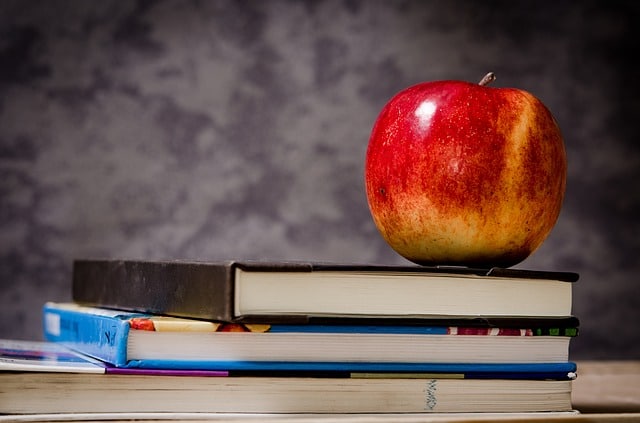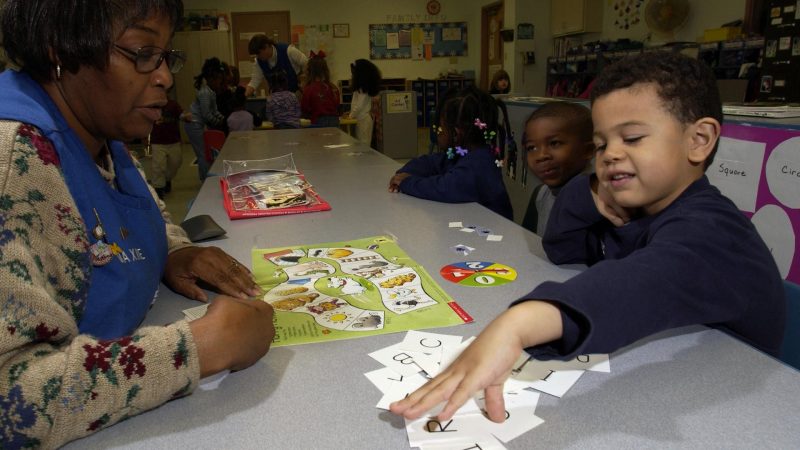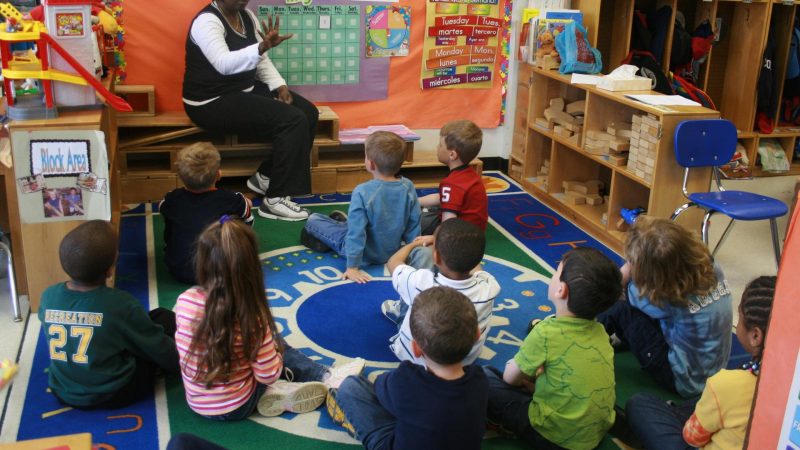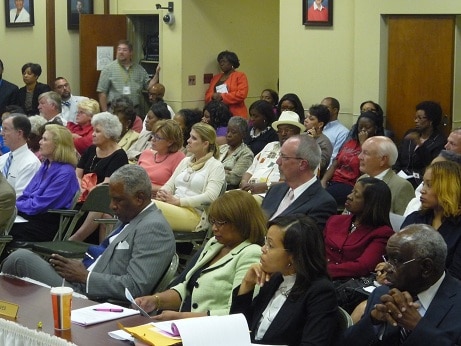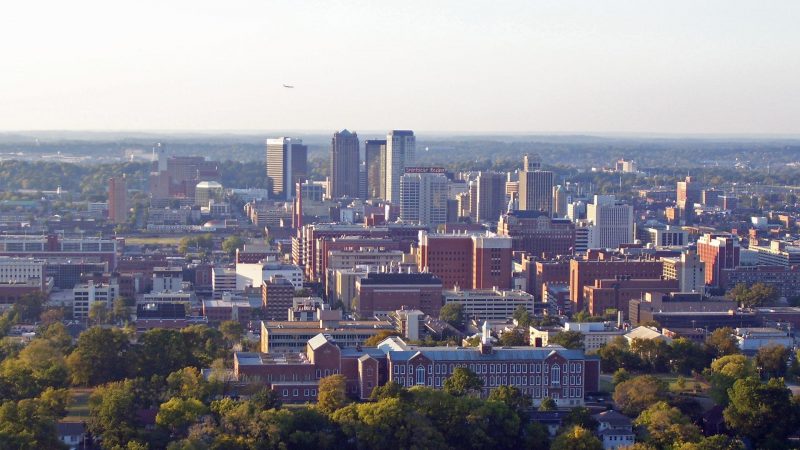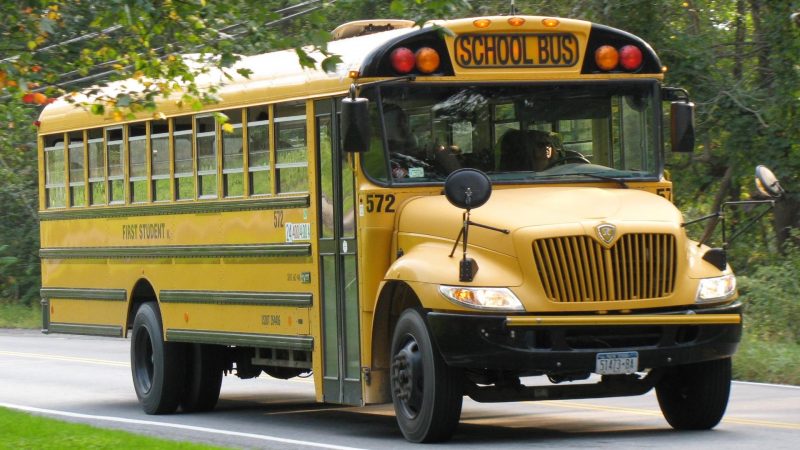Education
Selling Camp Coleman
For many children, summer vacation means the chance to go to camp. For Girl Scouts around Birmingham that tradition is about to change. Last month, the Girl Scouts of North Central Alabama announced it would sell four of its six camps, including the 87-year old Camp Coleman. The facility in Trussville is among the oldest continually operating Girl Scout camps in the country. As WBHM’s Andrew Yeager reports, one group is trying to prevent that closure from happening.
State Steps Up Intervention, Could Take Over Bham Schools
The Alabama State Board of Education votes to have the state oversee the Birmingham School Board's day-to-day financial operations, specifically its implementation of a cost-cutting plan. But that could be just the beginning of state involvement. Dan Carsen has this web-exclusive story and national newscast spot.
Backs to Wall, Birmingham BOE Approves Cuts
After another surprising and sometimes confusing meeting, the Birmingham Board of Education has approved a cost-cutting plan some hope will keep the state from taking over the district. Our Southern Education Desk reporter Dan Carsen has this web-exclusive report.
Carsen, Ott on All Things Alabama Education
A lot has been happening on the Alabama education beat since our last chat with Southern Education Desk reporter Dan Carsen, but one story continues to dominate and make national news: the Birmingham School Board. A slim majority recently rejected a state cost-cutting proposal, but ironically, that defiant move could result in the board losing what little autonomy it has left. WBHM's Tanya Ott interviews Carsen on that subject and more.
Possible Birmingham School Takeover and Don Siegelman’s Future
This week, members of the Birmingham Board of Education voted against the nearly $12 million in cost-cutting measures suggested by state investigators. The board now faces a possible takeover by the state. In his latest column, the Birmingham News' John Arcibald argues Birmingham's school system doesn't have a "money problem", but rather, a "problem with money."
B’ham Board Rejects State Cost-Cutting Plan
In a 5-4 vote along increasingly familiar lines, the Birmingham Board of Education on Tuesday rejected a cost-cutting plan proposed last week by the state team investigating the local board. An outright state takeover could be imminent. Southern Education Desk reporter Dan Carsen has this web-exclusive story.
Training School Principals
Research says the role of the principal is changing. They’re not just managers: they are instructional leaders. And as the expectations of principals change and grow, so too does the process of training them.
Good Teaching: Middle School Teacher of the Year
Teachers have long debated the best way to get students to absorb lessons. Whether it’s learning ABCs or trigonometry, there is no definitive answer on the best way to engage students. The Southern Education Desk asked a well-regarded Louisiana educator to talk about what works for him.
What Makes a Good Teacher?
Good teaching is central to effective education, but it's not easy to pin down what actually constitutes good teaching. WBHM and the Southern Education Desk want your opinion. Join us for Issues & Ales to have your say.
Good Teaching: May The Force Be With You
Inner city schools are tough places. In Jackson, Mississippi, only half of the kids make it out with a diploma, and far fewer leave ready for college work. But on occasion, a teacher can nurture a science scholar or even get a whole class to geek-out on grammar. In part four of our Southern Education Desk series, Good Teaching, Annie Gilbertson profiles a young teacher struggling, and sometimes succeeding, to share his love for Latin.
Good Teaching: High Schoolers Learn to Be Good Teachers
Studies estimate that a third of novice teachers quit in the first five years. Many say their training didn’t prepare them for the classroom. In Rome, Georgia, a program for high school students who aspire to be teachers is exposing them to the rigors of leading a class full of students now, even before they enroll in a college education program.
Good Teaching: A Reporter Returns to School
Every parent wants a good teacher for their child, and across the South, states are creating policies to make that happen. The Southern Education Desk's Christine Jessel travels back in time for a personal look at the question at the heart of these controversial evaluations: What does a good teacher look like?
Good Teaching Series Overview
For the past year, the Southern Education Desk has been digging into the challenges facing education in the south. One core question that has surfaced over and over again is: What is good teaching? The answer is complicated. There are no easy answers. Real understanding takes time, context and perspective. This week, Southern Education Desk journalists from five states begin a series of reports that will seek to provide some answers.
Birmingham to Beijing
Lack of exposure to other kinds of people, languages, and ideas is a disadvantage for poor rural and urban students across the country. Inner-city Birmingham is no exception, but six local high school students are hoping to become exceptional ... in more ways than one. Thanks to their hard work and the efforts of a first-year teacher, they're planning to study in China this summer. Our Southern Education Desk reporter Dan Carsen has the story.
Carsen, Ott on All Things Education Alabama
It's the final week of the legislative session and that means Alabama lawmakers are scrambling to pass several bills. One of them would tweak the immigration law by preventing school officials from asking students about their parent's immigration status. Still, the Justice Department is concerned about effects on Latino children. And that's just a little of what's happening on the education beat. Southern Education Desk reporter Dan Carsen tells WBHM's Tanya Ott about that and more in this week's interview.
INTERVIEW: State Schools Chief on Birmingham Investigation
The state investigation and possible takeover of the Birmingham Board of Education has made national news. State Superintendent Tommy Bice and his investigative team met with the local board behind closed doors here in Birmingham late Thursday. Our Southern Education Desk reporter Dan Carsen caught up with Superintendent Bice via cell phone while Bice was traveling late Friday. Click the link above or the picture for more of the story, or click an icon below to go straight to the web-exclusive interview.
Carsen, Ott on All Things Alabama Education
There’s a lot happening on the education beat. The problems on the Birmingham Board of Education have risen to the level of national news, and educators worried about everything from charter schools to budget cuts are raising their concerns, loudly. Southern Education Desk reporter Dan Carsen talks with WBHM's Tanya Ott about all this and more, starting with the big story: the drama surrounding the Birmingham Board of Education and the superintendent whom five of them tried to fire.
Witherspoon Is Still B’ham Schools Chief
UPDATED LATE THURSDAY: Despite repeated efforts by some at the Birmingham Board of Education meeting Tuesday night, Craig Witherspoon is still the school system's superintendent, and will remain so during a new state-level investigation of the local school board. Our Southern Education Desk reporter Dan Carsen was at the charged meeting and filed this extensive web-exclusive report. Click on the story to read Witherspoon's statement in response to the investigation, the state board's official April 12 resolution initiating it, and more.
Carsen, Ott on All Things Alabama Education
These are interesting times for Birmingham City Schools. Standardized testing is underway just as there’s a standoff over the future of superintendent Craig Witherspoon. The Board of Education could vote this afternoon to terminate his contract. Check the station website, Facebook page, and Twitter feed for the latest developments. There’s been some drama on the state and national levels too, with a congressional committee looking into the Alabama Education Association. WBHM’s Tanya Ott interviews reporter Dan Carsen on that and more in this week’s education chat.
Witherspoon Keeps His Job, for now
Birmingham City Schools Superintendent Craig Witherspoon still has a job, for now. The board of education discussed the superintendent's contract at a meeting Tuesday. And while five board members have expressed opposition to Witherspoon, the board was not able properly bring the issue of terminating his contract up for a vote. Southern Education Desk reporter Dan Carson was at the meeting. He spoke with WBHM's Andrew Yeager
Citizens Rally for Craig Witherspoon
About 150 people gathered in Birmingham's Linn Park today to show their support for embattled schools chief Craig Witherspoon. The superintendent's job security has been in doubt over the last two days especially, after the Board of Education on Thursday suddenly called a special meeting for the very next day on the topic of his contract, knowing two staunch Witherspoon supporters would be out of town. Dan Carsen has this web-exclusive follow-up story.
Craig Witherspoon Controversy
Birmingham School Superintendent Craig Witherspoon could very suddenly lose his job just after 5 p.m. today. In this web-exclusive report, Southern Education Desk reporter Dan Carsen explains how this surprising situation came about. UPDATED 3:18 P.M. FRIDAY: SPECIAL BOARD MEETING CANCELLED, PRO-WITHERSPOON RALLY TO GO AHEAD AS PLANNED AT 4 P.M. IN LINN PARK.
Carsen & Ott: Weekly Interviews on Education in Alabama
Carsen & Ott Talk Explosions and Explosive Issues Several Alabama school communities are reeling after incidents last week shook things up. E.P.I.C. Elementary School in Birmingham had to be evacuated Friday after a propane tank exploded. No one was hurt, but down in Mobile County, a teacher was taken to the hospital after an incident with a student. Nice, tame topics like charter-school propaganda, same-sex prom dates, and Louis Farrakhan round out this week's interview, which ends on a positive note.
Carsen and Ott EduChat
Is the state legislature pitting business incentives against school funding? And why are some Republicans balking at the charter school bill? At least a situation that's literally toxic -- the mercury spill at Putnam Middle in Birmingham -- has been cleaned up.
Wilkerson Middle Defies the Odds
It's easy to focus on what's wrong with education. And it's no secret that Birmingham Schools, like other urban districts around the nation, face serious problems. But there are schools here that are achieving success regardless. From the Southern Education Desk at WBHM, Dan Carsen has much more.
Carsen and Ott EduChat
This week's chat touches on the positive, the negative, and the in-between, or at least the in the eye of the beholder: politics once again makes an appearance.
Carsen and Ott EduChat
Severe thunderstorms, hail, and multiple tornadoes raked Alabama last week. Were any schools hit? And are there figurative storms on the horizon for the state's Education Trust Fund? In this fifth installment of a weekly series, WBHM's Tanya Ott starts the interview by asking about storm damage and an incredible recovery. The education budget may not be so lucky.
Carsen and Ott EduChat
Alabama legislators have their hands full with a variety of education bills at various stages of development, including ones that would authorize charter schools and offer credit for creationism classes for public high-schoolers. But for this week’s chat with Southern Education Desk reporter Dan Carsen, we move outside of Montgomery for some interesting education news. Carsen tells WBHM’s Tanya Ott that some of it is positive, some of it not – beginning right here in Birmingham.
Birmingham-Southern’s Basketball Team Still on Top
March madness is right around the corner, which means college basketball players are gearing up to make their mark on the postseason hardwood. It’s a particularly exciting time for the Birmingham-Southern College men’s basketball team. They’re poised for a strong tournament run. But as WBHM intern Kenan Le Parc reports, the team’s success comes in spite of several big challenges.
African American Leaders Question Charter Schools
Charter schools are being hotly debated in Alabama and in Mississippi, where opponents including African-American community leaders say charters will cause greater inequality in education and increased segregation in a state with a history of racial division.
Dan Carsen Speaks with Education Icon Diane Ravitch
Diane Ravitch has been a key figure in American education for decades. The prolific author and outspoken advocate was Assistant Secretary of Education and Counselor to the Secretary of Education under the first President Bush. She was a pioneer in the accountability movement, but has since made friends and enemies by changing some of her views. She spoke with Southern Education Desk reporter Dan Carsen, who asked her about issues hot in Alabama right now, including charter schools, charter advocate Michelle Rhee, and much more.
Carsen and Ott EduChat
When it comes to education in Alabama, it's safe to say there's enough going on to keep a journalist busy. In our third installment of a new weekly series, Southern Education Desk reporter Dan Carsen sits down with WBHM News Director Tanya Ott to break down some of it. The interview starts with a recap of recent reports on religion in public schools.

